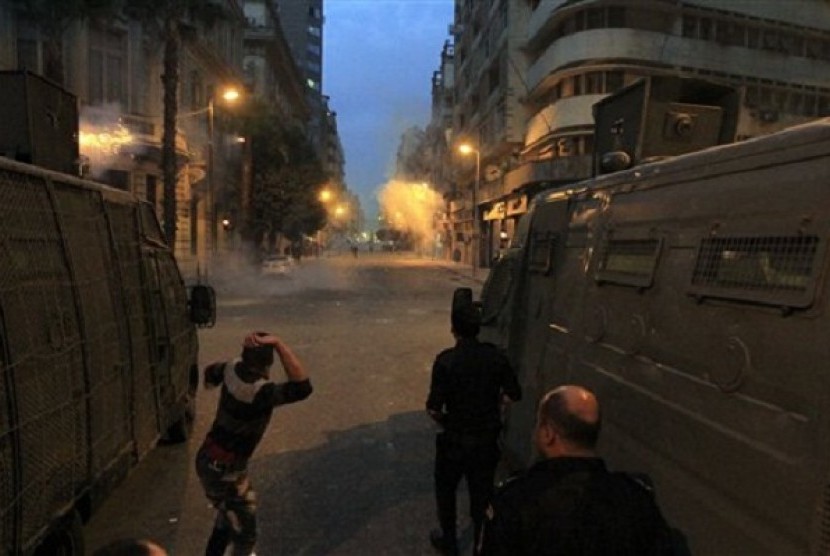REPUBLIKA.CO.ID, CAIRO - A panel that amended a constitution drafted under President Mohammed Mursi -toppled on July 3- held a final meeting on Monday. The documen will then to handed over to Egypt's interim president, who will set a date for referendum this month or in January.
BBC wrote that the draft, approved by a constituent assembly late on Sunday, preserved some of the military's wide-ranging powers and would allow a presidential election to be held before parliamentary polls. The next steps will be parliamentary and presidential elections in the spring and summer of 2014.
The last constitution was ratified by about 64 percent, but with a lowly turnout rate of a little more than 30 percent. Approval by a higher percentage and a strong turnout will constitute a vote of confidence in the roadmap.
The panel, appointed by the military-backed interim president Adly Mansour, is dominated by secular-leaning figures. But it includes several Islamists, including one from an ultraconservative party, and representatives from Al-Azhar and Christian churches. Activists from Tamarod, a youth movement that rallied millions of Egyptians demanding that Mursi step down ahead of the July coup, also sat on the 50-member panel.
The panel held its final deliberations in private but the voting on Saturday and Sunday was televised live. An upbeat mood prevailed in Monday's meeting, with members of the panel picked by the military-backed government praising the document as historic and a reflection of Egyptians' hopes.
A member, veteran lawyer and head of the Bar Association Sameh Ashour said: "This constitution may not reflect the expectations of all Egyptians, but it is a safety valve for the revolution at this transitional phase."
Mursi's supporters say the constitution's drafting is illegitimate because of the July 3 coup. Other non-Islamist critics say constitutional guarantees of political rights mean little if state institutions are not committed to upholding them, and worry that a recently enacted law restricting political protests shows the government's desire to crack down on opponents.
The charter requires presidents to declare their financial assets annually, and empowers lawmakers to vote out an elected president with a two-third majority. It also bans parties founded on religion or sect and unequivocally states the equality of men and women. It also guarantees the rights of Egyptians with special needs and the elderly.


